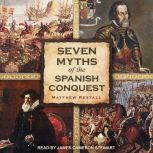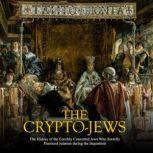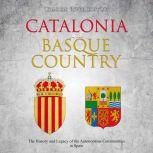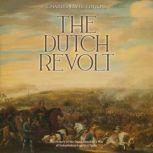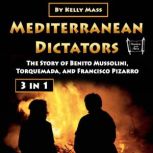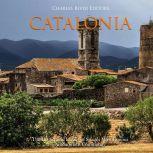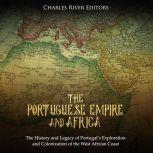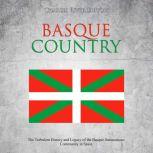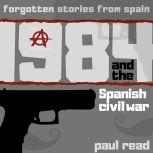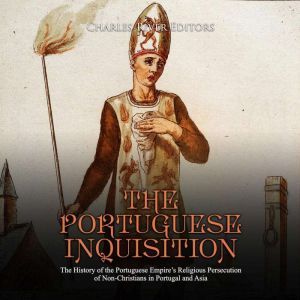
Details
Portuguese Inquisition, The: The History of the Portuguese Empire’s Religious Persecution of Non-Christians in Portugal and Asia
Author: Charles River Editors
Narrator: Ken Teutsch
Unabridged: 1 hr 46 min
Format: Digital Audiobook
Publisher: Findaway Voices
Published: 03/19/2019
Synopsis
“Goa is sadly famous for its inquisition, equally contrary to humanity and commerce. The Portuguese monks made us believe that the people worshiped the devil, and it is they who have served him.” – Voltaire
By the mid-15th century the Byzantine Empire had collapsed and the various Crusades that had taken place in the region had largely disrupted the overland routes of the Silk Road and trade. Compounding the difficulties of trade was the rise of the Ottoman Empire in place of the Byzantines and the outbreak of the Black Death in Europe.
It was roughly around this time that a period of European exploration began, and major factors that contributed to this period of exploration were introduced by the Chinese, albeit indirectly. The magnetic compass had already been developed and used by the Chinese sailors since the 12th century, although it had first been created in the 3rd century BCE as a divination device. The Song Dynasty then began using the device for land navigation in the 11th century and sailors began using it shortly after. The technology slowly spread west via Arab traders, although a case can be made for the independent European creation for the compass (Southey 1812: 210). Regardless, by the 13th century the compass had found its way to Western traders, coming at a time that trade had been increasing across Europe.
When it became clear Columbus hadn’t landed in Asia, it was understood by everyone that this was not necessarily the route the Europeans were searching for, and the Portuguese continued to send explorers around the Cape of Good Hope in an attempt to reach the East Indies. After a two-year voyage, in 1499, Vasco da Gama had successfully reached India and returned to Portugal.
The Portuguese had found access to the trade regions that they had been searching for, but sailing from Portugal to India and beyond would require too many resources to travel with at once. To remedy this problem, Portugal began establishing a number of forts and trading posts along the route. The Portuguese were able to establish a fort on the west coast of India, Fort Manuel, in 1500, and in 1505 a fort was erected off the coast of Tanzania, thus beginning a trend of European colonization in Africa and Asia that would last for the next 400 years.
The road to the modern age of cultural harmony and acceptance is one of the finest feats of human progress, but having said that, there was once a time when the mere doubt of a religious figure's existence was not only punishable by law, it could very well cost a man his life. This was the crime of heresy. This kind of religious persecution has been around for thousands of years, and Christians were often the victims, but when the Catholic Church began its rapid expansion throughout Europe during the Middle Ages, the tables were turned. In 1184, Pope Lucius III issued a papal bull that would kick off a long-standing tradition of heretic-hunting, and as a result, the Age of the Inquisitions commenced.
In a twist of events, the persecuted became the persecutors. From then on, the Roman Catholic Church took it upon itself to hold tribunals, or judicial courts, in a quest to exterminate heresy once and for all. These inquisitions, which would plague Europe for centuries, is believed to have seen hundreds of thousands persecuted for beliefs that went against the Church. A startling portion of them would be brutally tortured and sent to their deaths, and as Catholic empires expanded across the globe, the persecution would travel with them.
by Matthew Restall
Here is an intriguing exploration of the ways in which the history of the Spanish Conquest has been misread and passed down to become popular knowledge of these events. The book offers a fresh account of the activities of the best-known conquistador...
Published: 02/13/2018
by Charles River Editors
By the end of the 14th century, the distrust and prejudice against Jewish communities quickly spread to Spain. In 1391, James II of Aragon boarded the bandwagon; backed into a corner by the Roman Catholic Church, he established a law that banned J...
Published: 05/27/2020
by Charles River Editors
Shaped like an uneven triangle, Catalonia is comprised of four provinces that occupy an area of 12,390 square miles: Girona, Barcelona, Tarragona and Lleida. Catalonia also has a variety of different kinds of communities surrounding it, as its nort...
Published: 03/20/2020
by Charles River Editors
The Netherlands has had a complex and turbulent history involving the interplay of multiple political entities, ethnicities, and languages. The term "Netherlands" (Nederland in Dutch, Pay-Bas in French) refers to the low-lying topography of the regi...
Published: 02/15/2021
by Kelly Mass
These dictators all lived in Southern European countries. Meet the evil despots called:Benito Mussolini: Ironically, when we think of fascism, we often look at someone as brutal and influential as Adolf Hitler, but the word “fascism” ori...
Published: 02/21/2022
by Charles River Editors
Set in the northeastern corner of Spain and nestled next to France is the autonomous region of Catalonia. The name Catalonia is thought to mean the Land of Castellans (castlan means the governor of a castle), while another version of the story sugge...
Published: 12/30/2019
by Charles River Editors
By the mid-15th century the Byzantine Empire had collapsed and the various Crusades that had taken place in the region had largely disrupted the overland routes of the Silk Road and trade. Compounding the difficulties of trade was the rise of the Ot...
Published: 03/20/2019
by Charles River Editors
It would not be a stretch to say that for a very tiny geographical territory (just 20,747 square kilometers), the Basque Country has inspired a plethora of intense stereotypes. Some of these stereotypes have been cast upon its people from the outsid...
Published: 03/20/2020
by Paul Read
In 1937, George Orwell spent six months witnessing the rise and fall of a popular revolution on the streets of Barcelona and Catalonia. Alone amongst his contemporaries, Orwell understood what the success or failure of that Spanish Revolution would ...
Published: 03/02/2020

